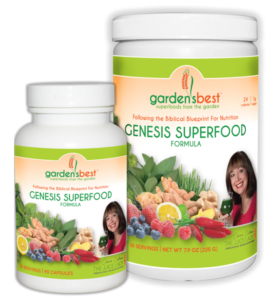Superfoods are foods that would have a positive influence on our body. This would protect them against cancer or cardiovascular disease. But not all superfoods deliver on what they promise. Also, they are often expensive, and there is a much cheaper (and sometimes better) alternative. What is a superfood, and what is just nonsense? View the list below.
Avocado
It Contains monounsaturated fats and Contains a lot of vitamin E.Both monounsaturated and polyunsaturated fat have a positive effect on health. It increases the ‘good’ cholesterol level and reduces the risk of cardiovascular disease. Vitamin E is involved in the metabolism in the cells. Vitamin E deficiency is rare. Avocado fits perfectly in a varied diet. Because of the fats, it provides a lot of energy.
Olive oil also contains many monounsaturated fats. Sunflower oil contains more vitamin E.
Baobab powder

It is high in calcium, fiber, potassium, and vitamin C. This powder is certainly rich in calcium and fiber per 100 grams. With 2.4 grams of fiber per serving, it can even be called ‘nice.’ But a portion of 5 grams does not add 5% calcium to a glass of milk. Calcium can also be found in, among other things, milk, nuts, and vegetables.
Bran contains the same amount of calcium and fiber but is only a fraction of the price. Converted, baobab powder costs around € 80 per kilo.
Blueberries
The flavonoids (antioxidant) reduce the risk of cardiovascular disease and cancer. The fruit has a positive effect on health. It is insufficiently proven whether this is due to the flavonoids. Berries also contain fiber, vitamin C, and folic acid and can certainly be called healthy.
Flavonoids are found in many different fruits. Each fruit has its positive qualities. Variation is important.
Broccoli
Sulforaphane in the vegetable protects against cancer. There are indications that sulforaphane protects against cancer, but it is not clear whether eating broccoli extra often gives more protection.
Broccoli contains vitamin C, folic acid, and calcium. Enough reasons to eat this vegetable often. Brussels sprouts, kale and radish also contain sulforaphane. Broccoli is a well-known and widely eaten vegetable. Variety is important, but this vegetable can certainly often be on the menu.
Cocoa Nibs
It is rich in iron and contains only 3 mg of iron per 100 grams. Superfoods can also make you fat. Cocoa nibs consist of more than half fat and therefore contain many calories.
Chia seed
It contains a lot of omega 3 and full of antioxidants, calcium, fiber, and other minerals and vitamins. One tablespoon contains the recommended daily amount of alpha-linolenic acid (omega-3 fatty acid).
The body converts alpha-linolenic acid into other fish fatty acids. Whether this happens sufficiently to have a protective effect is unclear. Fish contains even more (and other) omega-3 acids than chia seeds, but is less suitable for vegetarians. Flaxseed contains as much alpha-linolenic acid and fiber as chia seed and is cheaper.
Pomegranate
Polyphenols in the pomegranate protect against heart disease and prostate cancer. It is unclear whether the healthy effect of fruit is caused by polyphenols. The pomegranate hardly contains any vitamin C.Polyphenols are found in many different fruits. Citrus fruits contain much more vitamin C.




